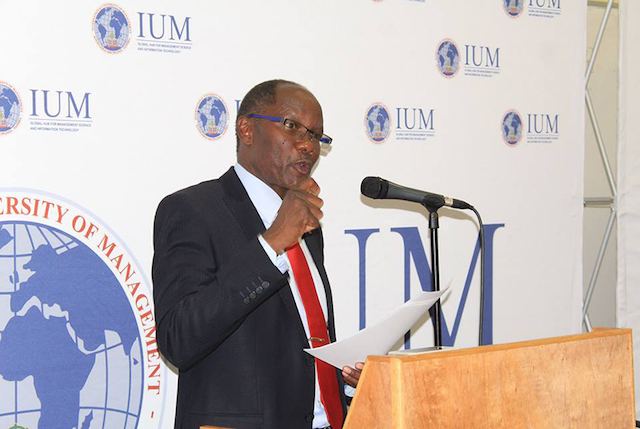TO help Namibians gain the skills necessary for addressing various environmental challenges to achieving sustainable development, the International University of Management (IUM) recently established the Centre for Environmental Studies.
The centre will serve as a training and research hub to address the dynamics of environmental management, climate change mitigation and adaptation, and sustainable development.
According to IUM, one of the major challenges to achieving sustainable development in semi-arid countries like Namibia is the erratic supply of and limited access to natural resources like water to support domestic and agricultural activities and the preservation of wildlife.
“With the increasing human populations and the drive for development, pressure is exerted to harness water resources for higher economic use instead of developing and adopting the so-called integrated approach,” the institution said in a recent media release.
IUM explained that in an integrated approach, the various needs and provisions for sustainable livelihoods and ecosystem conservation are assessed and balanced. However, the linkages between water resource management, sustainable livelihoods and biodiversity conservation are not well known.
As a result, says the university, the efforts of various management programmes and policy initiatives in Namibia have so far developed independently, often with overlapping or conflicting goals.
“The establishment of the centre will help to address most of these challenges and shortcomings,” IUM said.
The centre will offer a variety of qualifications and courses ranging from bachelor’s to PhD degrees in areas such as integrated natural resources management, sustainable development, integrated environmental management and sustainable development, climate change mitigation and adaption, and conservation agricultural management.
Although Namibia is a dry country, it is rich in biodiversity with some plant species only found here.
The country is also party to a number of multi-lateral environmental agreements, such as the Convention on Biological Diversity, the United Nations Convention to Combat Desertification and the United Nations Framework Convention on Climate Change.
The founder and chairperson of IUM’s council, David Namwandi, last week told The Namibian that Africans should realise that the global climate change globally will affect the continent adversely.
“Therefore, we have to devise strategies and policies to keep our heads above the water,” he said.
In recent years, several institutions of higher learning in Africa have introduced programmes in environmental studies as the continent has realised the importance of protecting the environment.
Stay informed with The Namibian – your source for credible journalism. Get in-depth reporting and opinions for
only N$85 a month. Invest in journalism, invest in democracy –
Subscribe Now!






